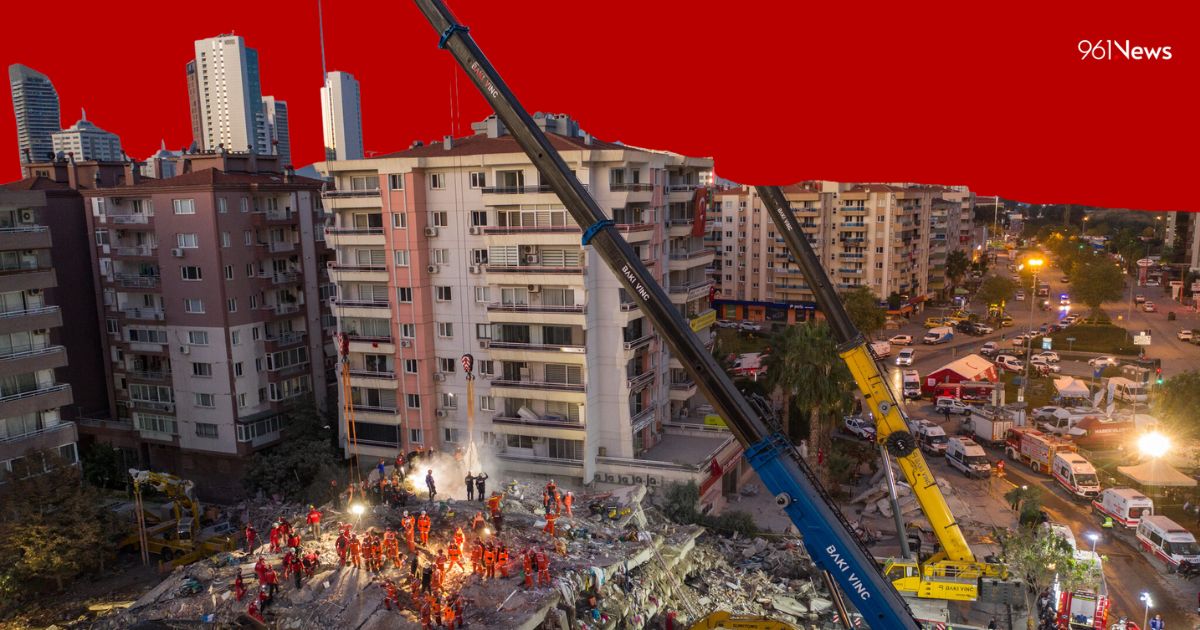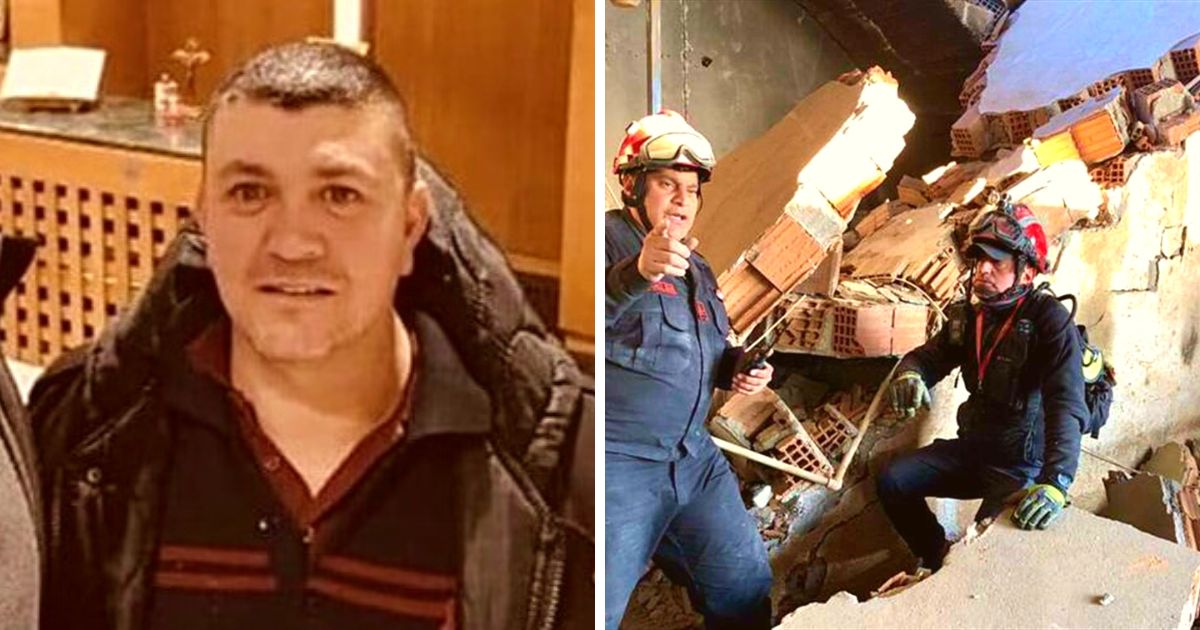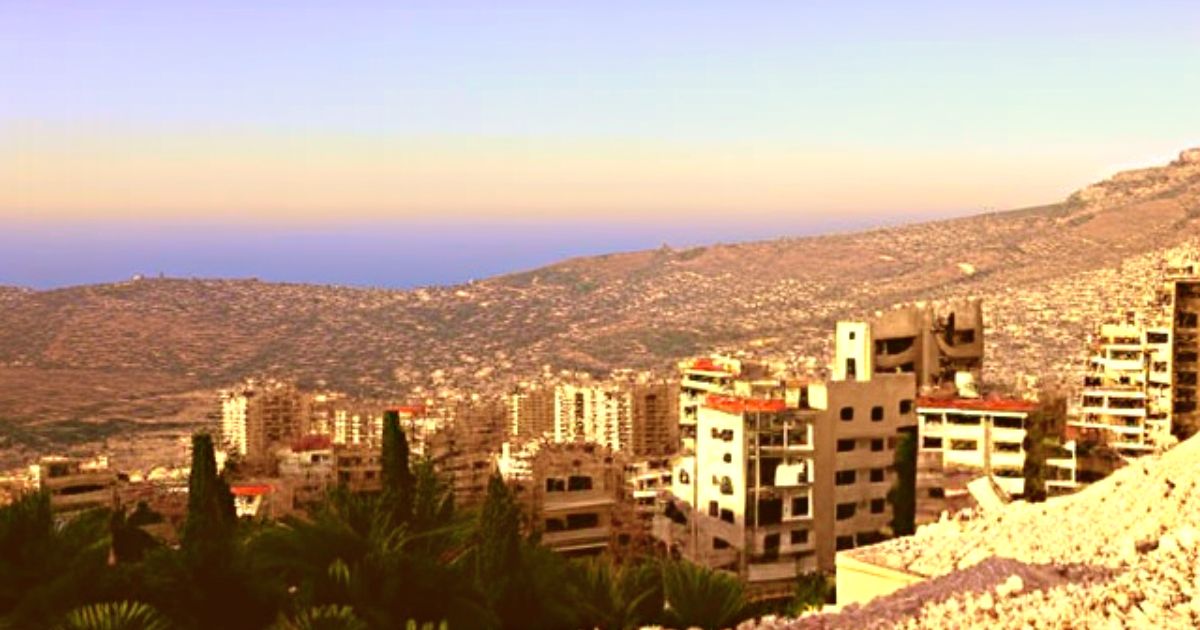In Lebanon and the surrounding region, it is not uncommon to hear people attribute death to “God’s will” – suggesting that such events are inevitable and beyond human control. The deeply ingrained religious beliefs in the area can make it easy for people to accept this perspective. It also conveniently allows those responsible for mismanagement or negligence to deflect blame and attribute these tragedies to a higher power – asserting that they may be influential but not omnipotent.
The term “act of God” is often used to describe natural disasters, which serve as a humbling reminder of the limits of human power and control. These immense forces of nature can make us feel helpless, leading many to believe that we must simply accept their consequences as part of our destiny. However, it is essential to recognize the role of human action and inaction in exacerbating the effects of these disasters, rather than merely attributing them to some sort of divine will.
Collectively, through a proper government, the people have the ability to stand in the face of “acts of God” to minimize the impact and save lives. Before the ultra-religious come after me accusing me of “defying God’s will,” He has blessed us with the ability, mental capacity, and technologies to do just that – save the lives of innocent people.
In effect, this is the purpose of good governance. To create a safe and stable environment for anyone and everyone to proposer based on their own free will and determination.
Earthquakes are a destructive and unpredictable force of nature, yes. But proper governance and planning does help minimize their impact on human life. Building codes and regulations play a critical role in ensuring that structures are designed and constructed to withstand earthquakes, but it takes more than that to fully prepare for a disaster.
Japan, for example, has some of the most advanced earthquake-resistant building techniques in the world, and has used these strategies to great effect in saving lives during past earthquakes. The 9.1 magnitude Tōhoku earthquake that hit Japan in 2011 had an epicenter 373 km (232 mi) away from Tokyo, one of the densest cities in the world with more than 13 million residents. At least 18,500 people were killed or remained missing – most of whom due to the Tsunami that followed and not the earthquake itself. Perfect example of using human ability to the best of our ability to prevent death.
On the other hand, countries like Lebanon, Syria, and Turkey, continue to suffer tremendous losses due to their governments’ failures and poor governance. From failing to enforcing building regulations, handling crises, and providing the necessary support in a timely manner – if any at all.
It is high time that these nations take a hard look at their governance structures and make significant changes to prevent further loss of life.
In Turkey, the 7.8 and 7.5 magnitude earthquakes have claimed more lives than the Tōhoku earthquake in Japan, despite the closest major city having a population of 2 million people. Many of the collapsed buildings were relatively new and advertised as “earthquake-resistant,” only for their residents to end up trapped and killed under the rubble. The Turkish government has failed its people by not enforcing proper building regulations, and rampant corruption has made matters worse.
Turkey’s President Erdogan will face scrutiny as the people look to hold those responsible accountable. With elections approaching, we can expect Erdogan to publicly scapegoat developers to deflect attention away from his government’s failures. But the blame does not lie solely with the developers. The government’s lax enforcement of building codes and a corrupt system that allows developers to pay fines instead of adhering to safety regulations have led to the deaths of countless innocent people. Corruption and poor governance killed them, not the earthquake.
In Lebanon, the August 4th, 2020 Beirut explosion serves as a powerful reminder of the consequences of neglect and poor governance. The tragedy resulted in the loss of over 244 lives and billions of dollars in damage, all of which were completely preventable. How do we know? Simply take a look at how all other countries handle such material – often storying them away from populated areas and if found improperly stored, taking immediate action to address the issue. The Lebanese government’s inaction over the years leading up to the explosion – despite knowing about the improperly stored materials and ignoring them, failure to address the consequences of the explosion and implement meaningful changes in governance only serves to exacerbate the suffering of its people.
Lebanon’s government must also take responsibility for its inadequate response to the recent earthquakes in Turkey and Syria, which left several Lebanese citizens missing and eventually found dead. Families of the missing were left in the dark, struggling to obtain any information about their loved ones, due to the lack of coordination between Lebanese authorities and their counterparts in Turkey and Syria. This failure underlines the urgent need for the Lebanese government to establish effective communication channels with other countries during emergencies and natural disasters, and to prioritize the safety and well-being of its citizens, both at home and abroad.
Syria, a country reeling from the devastating effects of civil war, is yet another example of bad governance leading to unnecessary suffering. The Syrian government’s various abuses, combined with its unwillingness to allow aid to reach opposition-held areas until a week after the earthquake, have only exacerbated the hardships faced by its people. The international community, wary of sending aid to a country with an estranged and uncooperative regime, has been delayed the much-needed assistance from arriving on time. This is putting aside how the Assad regime indiscriminately barrel bombed Syrian people in opposition areas over the last decade and giving access to Putin’s Russia to do the same.
It is evident that the governments of Lebanon, Syria, and Turkey must learn from the experiences of nations like Japan, which have prioritized effective governance and disaster preparedness. They must enforce building codes and regulations, educate the public, and have well-trained first responders and search and rescue teams in place. In doing so, they can significantly reduce the loss of life and the suffering caused by earthquakes and other natural disasters.
The need for a comprehensive approach to disaster preparedness is more urgent than ever as Lebanon sits on a major fault line and has experienced unrecoverable damages from earthquakes in its history – including one that wiped out most of Beirut. Recent reports showed the most buildings in Lebanon are not able to withstand a major earthquake. No action has been taken to address this or to prepare for it, not after the report was published and not even after the nearby earthquakes that, along with the aftershocks, rattled Lebanese homes for weeks.
Good governance, aside from enforcing regulations, includes investing in earthquake-resistant infrastructure, enforcing building codes and regulations, and educating the public on what to do before, during, and after an earthquake. Furthermore, governments must ensure that their emergency response systems are well-coordinated and efficient and that they have effective communication channels with other countries during crises.
Another crucial aspect of good governance is the preservation and strengthening of international relationships, which can prove invaluable, especially during times of crisis and disaster. As we saw in the aftermath of the recent earthquakes, aid, and support poured into Turkey, whereas neighboring Syria struggled to receive assistance due to the strained relations between its government and the international community. Maintaining good relationships with other nations is essential for facilitating cooperation and receiving aid during emergencies and ensuring the people are protected.
The Lebanese government’s persistent mismanagement of multiple crises over the years has, directly and indirectly, led to the loss of countless lives. Their failures range from driving millions into malnutrition, mishandling public funds, enabling and participating in rampant corruption, abusing the justice system, obstructing justice through the interference of the Beirut Port Blast investigation, and inadequately responding to the pandemic. They have also allowed essential resources like fuel, medicine, and bread to become scarce and inaccessible. Worst of all is their apparent lack of urgency in finding a solution or taking the basic steps to begin the country’s recovery.
Moreover, the government’s increasing apathy and complacency regarding Hezbollah’s growing influence in Lebanon and the region have further alienated the country on the international stage, exacerbating the crises its people face. This ongoing negligence not only highlights the urgent need for reform but also serves as a stark reminder of the devastating consequences of bad governance. It is crucial for the people of Lebanon to hold their government accountable for its failures and demand the changes necessary to prevent further loss of life and ensure a more secure and prosperous future for all.
In the face of adversity, it is essential that governments hold themselves accountable and take responsibility for their failures. The people of Lebanon, Syria, and Turkey deserve transparency, honesty, and a genuine commitment to change from their leaders. For too long, corruption and poor governance have been allowed to fester, leading to unnecessary loss of life and suffering. It is time for these governments to take a hard look at themselves and make the changes necessary to protect their citizens from future disasters.
Leaders must also recognize the importance of a free and independent press in holding governments accountable and raising awareness of the consequences of bad governance. A strong and responsible media can act as a powerful force for change, shedding light on corruption and mismanagement, and pushing governments to take the necessary steps to protect their citizens. Yet, especially in Lebanon, we see journalists and media as “open game” for attacks of all sorts; physical, harassment, cyber, and legal.
It is essential that the international community continues to pressure these governments to implement meaningful reforms. Global cooperation is vital in ensuring that countries like Lebanon and Syria do not continue to suffer needlessly in the face of poor governance.
Natural disasters are an inevitable part of life, but manmade ones are not.
It is our collective responsibility to demand better governance and accountability from our leaders. The people of Turkey, Lebanon, and Syria have endured enough suffering, and they deserve leaders who will prioritize their safety and well-being above all else. It is time for change, and it is time for these governments to step up and take decisive action to prevent further loss of life and suffering.












